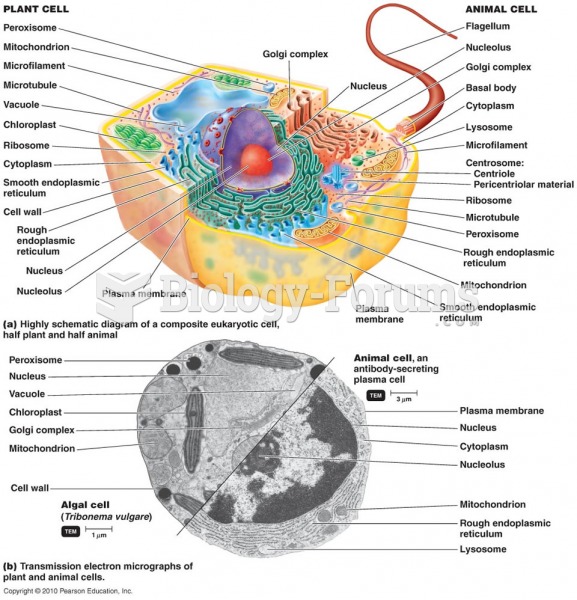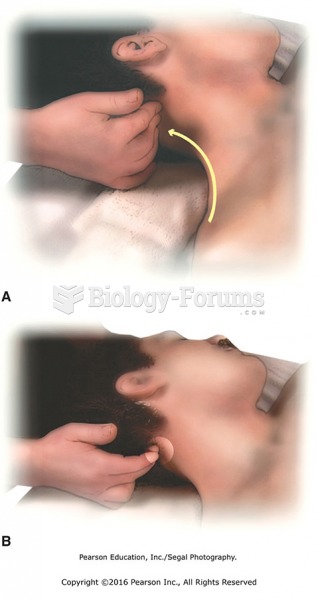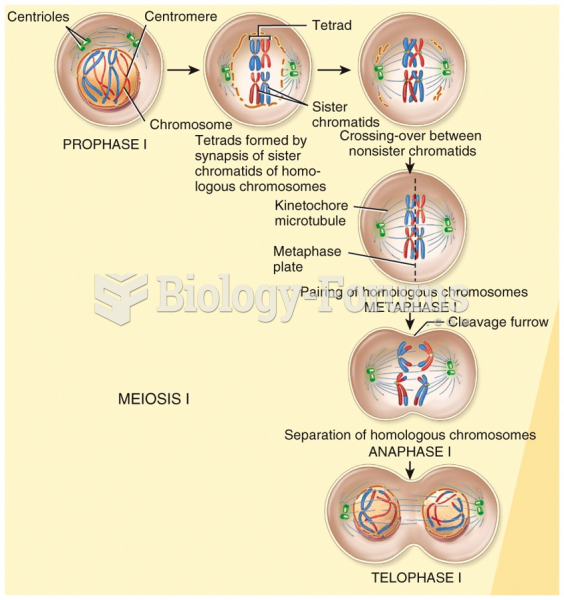This topic contains a solution. Click here to go to the answer
|
|
|
Did you know?
Hip fractures are the most serious consequences of osteoporosis. The incidence of hip fractures increases with each decade among patients in their 60s to patients in their 90s for both women and men of all populations. Men and women older than 80 years of age show the highest incidence of hip fractures.
Did you know?
Thyroid conditions may make getting pregnant impossible.
Did you know?
On average, the stomach produces 2 L of hydrochloric acid per day.
Did you know?
During pregnancy, a woman is more likely to experience bleeding gums and nosebleeds caused by hormonal changes that increase blood flow to the mouth and nose.
Did you know?
The longest a person has survived after a heart transplant is 24 years.







